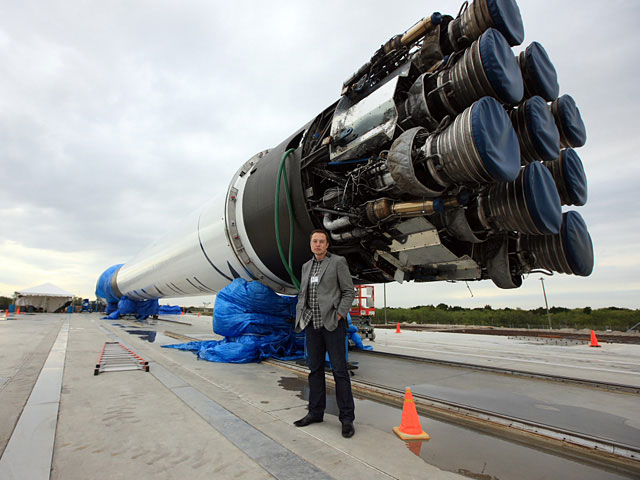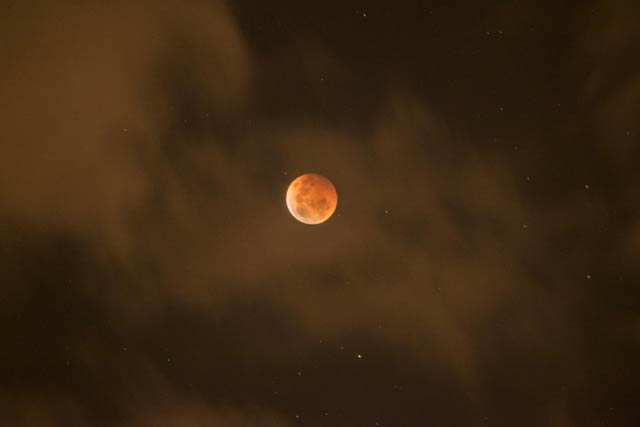
If all goes as planned, two tourists will crawl into a space capsule at the end of next year and blast off for a week-long trip to the moon and back. It’s the ultimate couple’s vacation, offered exclusively by Elon Musk’s SpaceX, which announced the venture last week. It may also serve as the starting gun for a new and very different space race.
Unlike during the Cold War, the competition this time around isn’t between countries. Instead, it’s between start-up companies like SpaceX, on one hand, and government space agencies and traditional contractors on the other.
The immediate prize is the moon. But longer term, victory will go to whoever speeds up the pace of exploration while driving down the costs. In that race, the private sector will always have an advantage — and the sooner the US government accepts that, the better.
Since Americans last visited the moon in 1972, Nasa’s human exploration programme has been hindered by poor planning and shifting priorities. In 2005, President George W Bush announced an ambitious plan for new lunar missions that would (over time, in theory) reduce the cost of exploration. Five years later, Barack Obama’s administration cancelled that plan in favour of a poorly defined “Journey to Mars”.
The key hardware for that venture includes a space capsule named Orion and a massive rocket called the Space Launch System, or SLS. Combined, they’re costing more than US$3bn/year to develop. Yet for all that, the Orion capsule has flown exactly once, in 2014, and the SLS hasn’t flown at all. The first manned Orion mission isn’t expected until 2021 at the earliest. Any future missions would theoretically happen about once a year, but no one has quite figured out where they’ll go.
SpaceX works faster and cheaper, and that’s one reason it seems so confident about lapping Nasa. Its lunar tour will launch atop a Falcon Heavy rocket, a variant of the company’s successful Falcon 9, which has been through dozens of launches, including resupply flights to the International Space Station. Its Dragon capsule has also completed cargo missions, and the Dragon 2 — designed for humans — will be launched twice later this year.
Maybe more important, the price is right: development of the Falcon 9 cost just $390m, compared to the $1,7bn-$4bn that Nasa would’ve spent on the same project, as one study found. A launch on the Falcon Heavy is priced at just $90m, while estimates of an SLS launch range from $500m-$1bn.
Of course, Musk is prone to over-promising. And considerable risks remain for SpaceX’s much-hyped moon mission, starting with the (presumably) amateur astronauts who will be aboard. They’ll be subject to training, but in the event of an emergency they’re unlikely to respond as well as a professional would. The liability waiver forms will surely be extensive.
But Nasa’s risks may be even greater. For one thing, it may be launching astronauts atop an untested rocket, an idea that Donald Trump’s administration recently asked the agency to study in the hopes of speeding things up. Nasa has attempted that only once, for the first flight of the space shuttle in 1981, and the consequences were nearly disastrous.

Nasa will also incur substantial new costs in fast-tracking Orion, which still lacks a tested life-support system, among other problems. More to the point, no one knows precisely what the payoff would be to justify all the added risk.
That doesn’t mean that Nasa should pull out of the space race entirely. But rather than do things that private companies are proving they can do faster and cheaper, it should refocus its considerable resources on autonomous exploration and on doing the basic research necessary to help US space companies succeed.
Already, SpaceX is competing against other government space agencies for commercial satellite business. In time, that competition will move to the moon, where companies such as Jeff Bezos’s Blue Origin have long-term ambitions to set up permanent bases. If American companies are to succeed in these goals against the likes of China, they’ll need Nasa’s help.
That’s the real space race, and SpaceX and its tourists are — for now — winning it. — (c) 2017 Bloomberg LP
- Adam Minter is the author of Junkyard Planet: Travels in the Billion-Dollar Trash Trade

